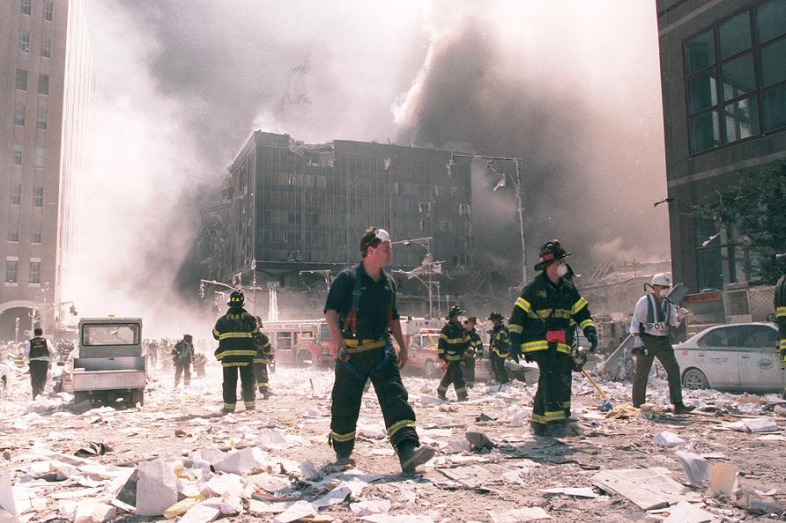

For many of us who remember Sept. 11, it’s difficult to process that two full decades have passed since the terrorist attacks in New York, Pennsylvania, and Washington, D.C. Some of those moments remain so clear – and so painful – that the wounds feel fresh.
The tragic and terrifying events unfolded on live television, and were extensively documented. How do teachers help students put the multitude of video clips, photographs, and voices into context? Where do they find connective tissue to their own lives? How might the “story” of 9/11 be framed so that students fully understand it’s not just a day of remembrance of victims and survivors, as well as the impact it’s had on American society and global events?
This can be a daunting task for educators at all grade levels, from K-12 through college. It’s also a challenge for education reporters tasked with capturing both the emotion of the anniversary as well as the nuance of its impact. Here are a few standout examples of 20th anniversary stories, as well as some helpful resources for reporters for approaching their future coverage:
- The importance of nuance is echoed by education researchers at the University of Wisconsin-Madison, which surveyed teachers in 2018 to find out how they approached teaching about the terrorist attacks. Professor Jeremy Stoddard and School of Education Dean Diana Hess, who conducted the survey, warn that “While honoring the victims and helping a new generation understand the significance of these events are important, we believe there are inherent risks in teaching a simple nationalistic narrative of heroism and evil.”
- Chalkbeat offers a nuanced roundup of voices from students and educators who were in their respective classrooms on Sept. 11. This is a good example of the power of letting people tell the story in their own words.
- The New York Times compiled 10 Ways to Teach About 9/11. While it’s a resource geared toward educators, it’s also useful reading for education reporters. I especially recommend the section that suggests people “revisit history’s first draft.” How did your own media organization cover the story in 2001?
- The education team at the Philadelphia Inquirer talked with educators at both the K-12 and higher ed level. Ameena Ghaffar-Kucher, a senior lecturer at the University of Pennsylvania Graduate School of Education, shares this important lesson: the far-reaching global impact of 9/11 heroic acts and remembrance. She helped develop the interdisciplinary “Teaching Beyond Sept. 11 curriculum, which focuses on the “ongoing global impact of 9/11. There are lessons about democracy and rights, media and representation, foreign policy, and public opinion and anti-Muslim sentiment.” As Ghaffar-Kucher tells the Inquirer, “There’s history from the last 20 years that is completely neglected. This curriculum is really speaking to that gap and helping young people understand just how the world has changed as a consequence of that awful day.”
For more on how 9/11 has been taught in recent years, take a look at my post from the 15th anniversary.
